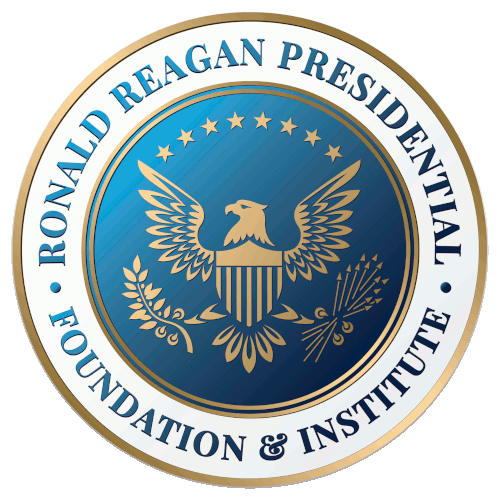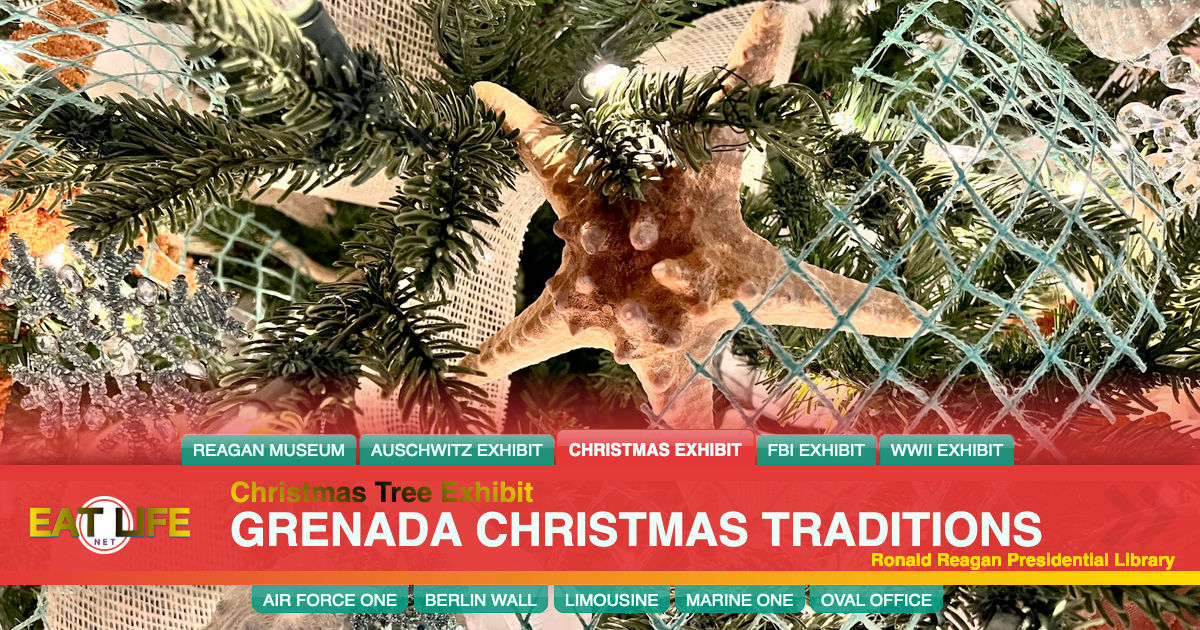CHRISTMAS:


https://www.google.com/maps/place/St+George's,+Grenada




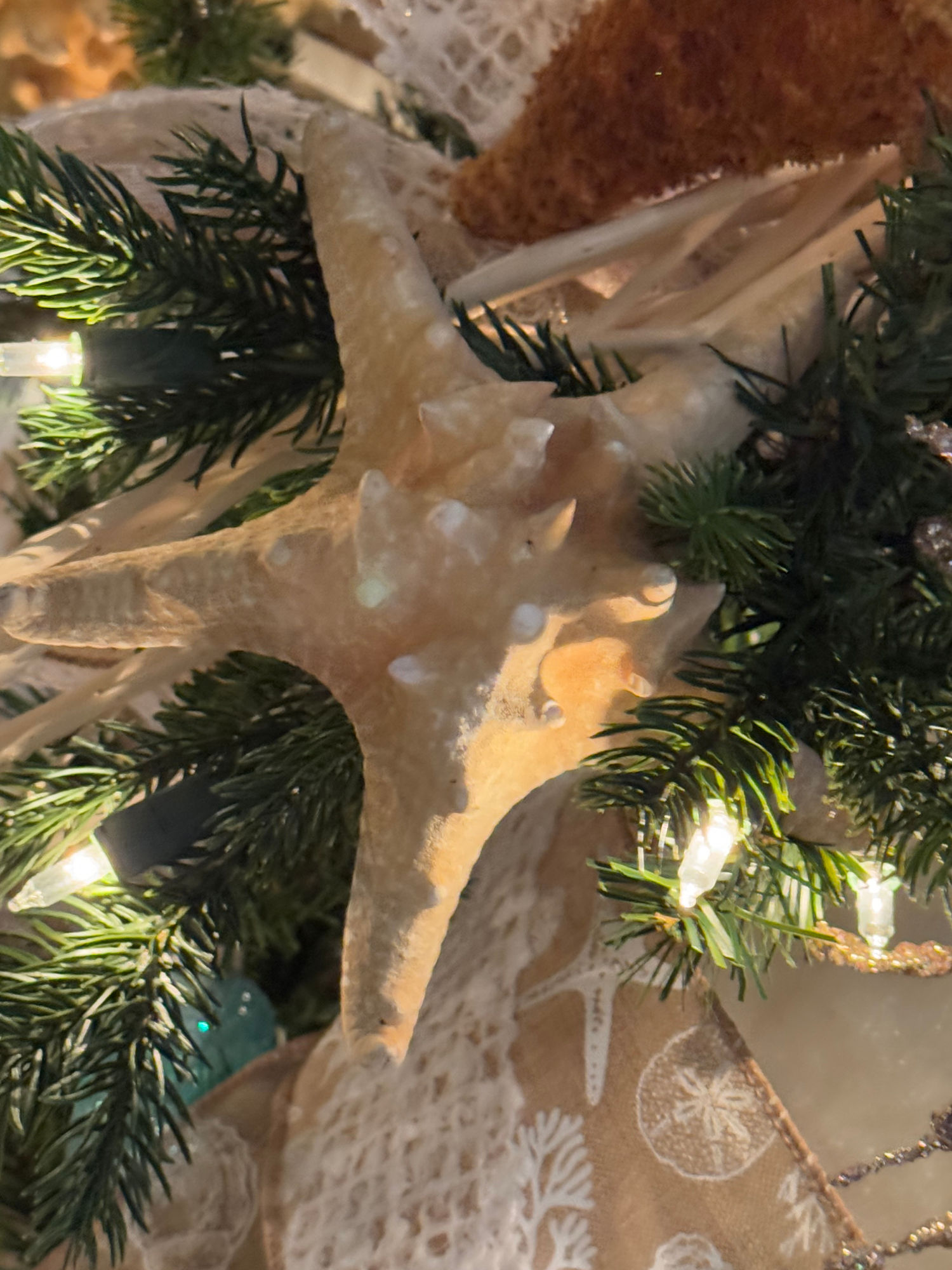
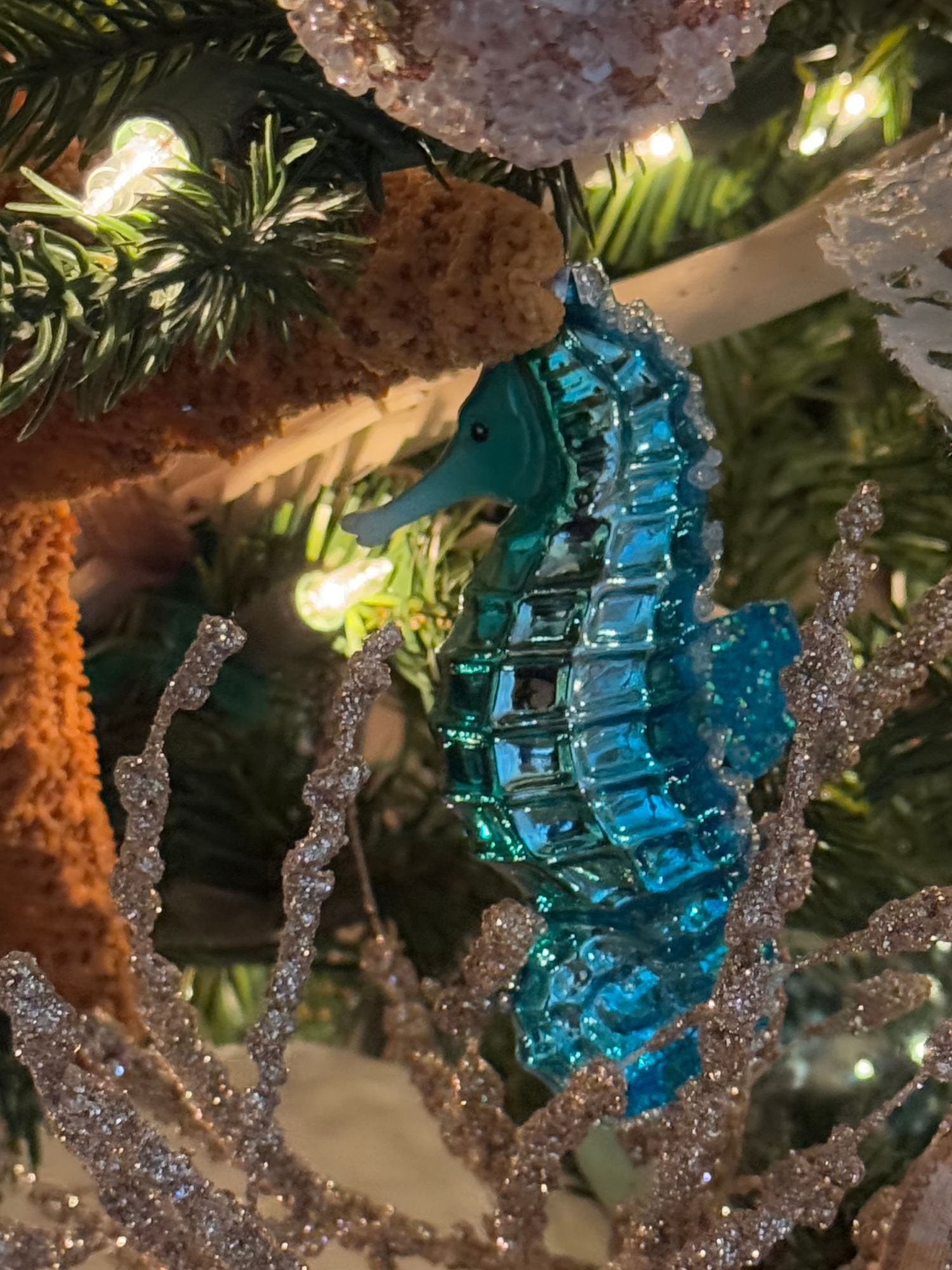
WordpressGrenadian Christmas Traditions
Every country and culture that celebrates Christmas has its own unique traditions. Most of our fondest Christmas memories are from childhood, before the pressure of making Christmas happen with; cleaning, entertaining, cooking and shopping set in. Christmas in Grenada and the Caribbean is no exception.Baking Traditional Black Christmas Cake (contains lots of rum and wine)
During Childhood this consisted mainly of assisting our mothers, grandmothers and great grandmothers. By assisting we mean primarily licking the batter after the bowl was scraped and being slightly disappointed (well...actually...quite disgruntled) at how thoroughly it was scraped. Some things are simply international..and licking the batter from the mixing bowl is one of them.Traditional Black Christmas Cake contains dried fruits soaked in rum and wine for months before Christmas. It is mixed together with flour, butter, spices and more eggs than your average cake. The result; a fruity, dense, moist yet mysterious crunchy and very dark rummy cake. A little underage alcohol consumption around the holidays is also universal.
Christmas Cleaning
In Grenada we are big on Christmas cleaning. We are expecting lots of visitors from near and far. The house, yard and garden is given a thorough wash up and fix up. Curtains and rugs that were just fine all year round are taken down and replaced with new ones. Children are not spared in this process. In some instances to earn their Christmas shopping money there is a competition between siblings for who can clean the most and the best. Those who have done the best job are rewarded with the most money. Talk about enforcing that whole naughty or nice tradition.Shopping in town on 24th December (Peek Christmas Rush)
Whyyyyy do we do this to ourselves?!? Year after year!! For children this more exciting than stressful. The barely there sidewalks overflow with thick crowds and street sides are blocked by pop up Christmas vendors. As children we were on the hunt for the perfect remote control car , water guns and dolls to take back home (by now water guns are illegal). Buying apples and grapes is also traditional. Even if this is the one time during the year that we buy them. It is all part of the excitement of the holiday season.Large family gatherings with lots of food.
In Grenada family gatherings at Christmas do not just mean siblings, parents and grandparents. Its more like parents, siblings, grandparents, aunts, uncles, cousins, and pumpkin vine cousins (pumpkin vine includes but is not limited to; your father's sister's husband's aunt's half brother's nephew).Some of our team say as much as 50 family members and friends fit into one home and everyone brings a dish. This means eating lots of delicious Christmas favourites... most popular being ham, drinking your fair share of soft drinks, malt, sorrel, ginger beer and sneaking in some wine and rum cake... sorry we meant Traditional Black Christmas Cake.
Check social media on Christmas day around lunch time and you will see plates piled high with all manner of Christmas favourites !
Melee Parang
Pronounced " MAY-LAY PAH- RANG"
In terms of musical genre parang can be described as a mix of Spanish and African rythms. You know it is a pragang is you hear lots of high pitched "brihhhhhhhhhhh" and "aye aye aye ahhhhhribahhhhh". This specific type of music is unique to the eastern Caribbean and you will hear it on the radio in the last weeks of November until Christmas.In Grenada it usually has scandalous lyrics commenting on peoples misdeeds during the past year. If you know you have been indiscreet and as we say "your business is on the road "...look forward to reliving it through the rhythms of sweet sweet parang music. In local parlance "Your name will call in parang". It is all part of the fun (at your expense).

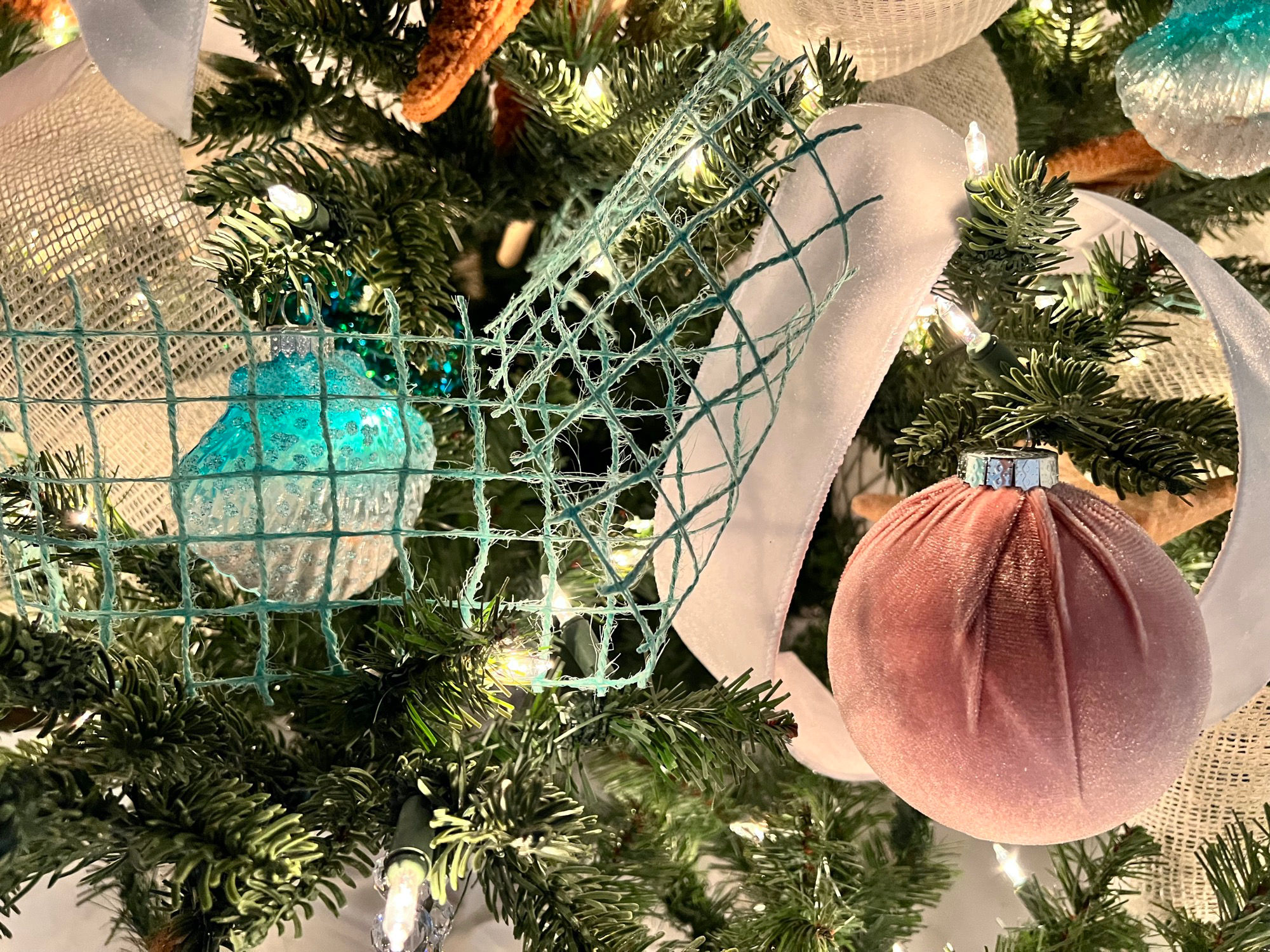
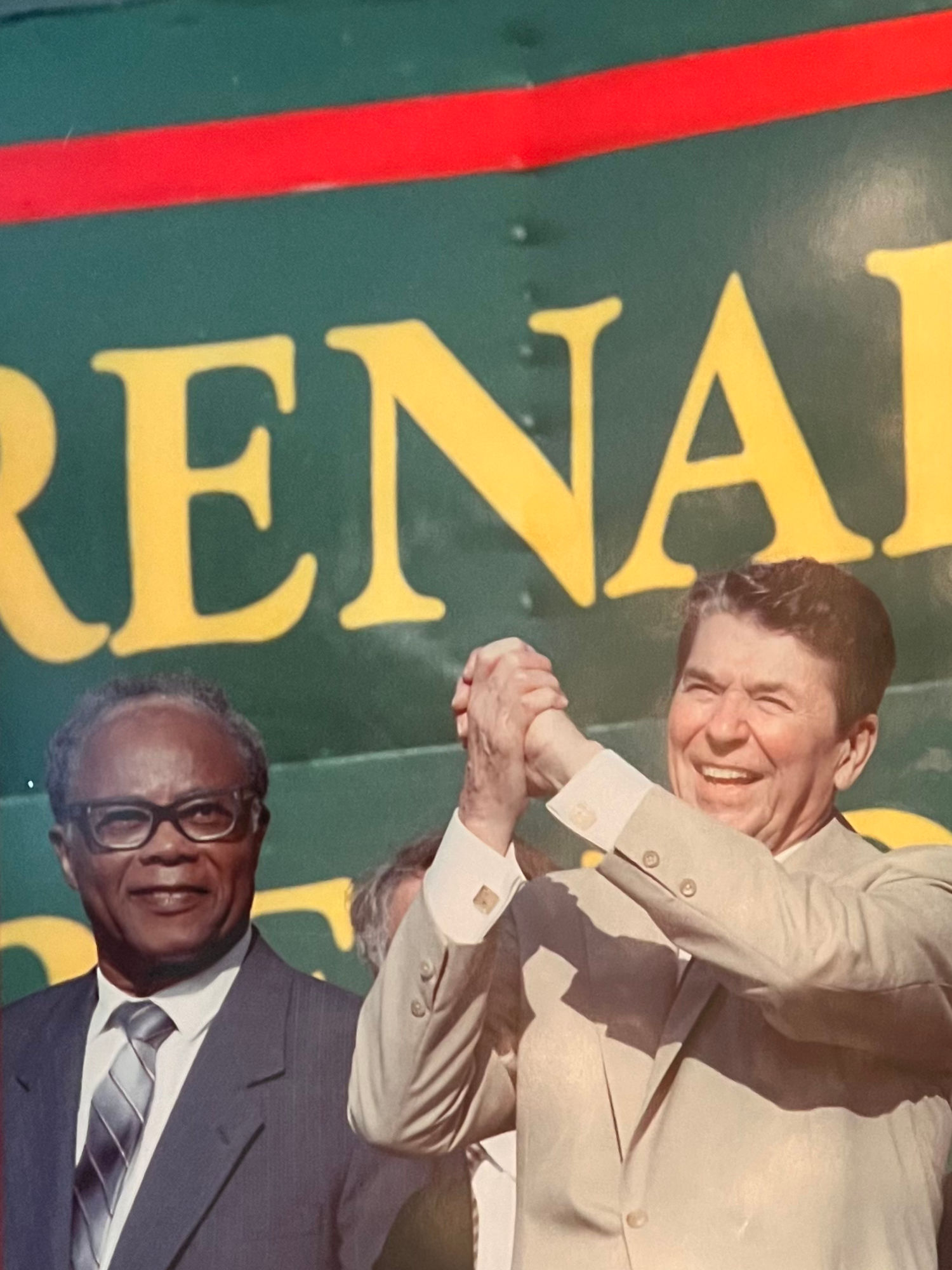
President Reagan and Prime Minister Blaize of Grenada. The President met with several Island leaders and dedicated a memorial to U.S. servicemen.
Reagan's Daily DiaryThursday, February 20, 1986
An unforgettable day-a 3 1/2 hour flight to Grenada to meet with Gov. Gen. Scoon & the P.M.’s of the Caribbean nations-Barbados, Jamaica, Tobago, Domenica, Trinidad, St. Lucia etc. Grenada declared a Nat. Holiday in my honor. I unveiled a bronze plaque dedicating the new airport-which we finished building after our rescue mission in 1983. Then I laid a wreath at the monument to the 19 of our soldiers, sailors, Marines & Airmen who gave their lives in the rescue mission.Then a meeting with the P.M.s. They are a solid group totally dedicated to democracy. I was able to tell them of some definite plans which will help their economies. We are talking too of a plan for a Security treaty involving all of us. Then on to the outdoor meeting honoring me for our help to them in the rescue mission. There were 38,000 who went through the magnetometers & several thousand more outside the park who couldn’t get in. Total pop. is only 90,000. There was entertainment-children dancing & a choral group-2 bands. From there we left for the airport & home.
Key Facts
- President Reagan leaves the White House for a trip to Central America and the Caribbean.
- President Reagan meets with various Prime Ministers of Caribbean nations.
Ronald ReaganRemarks to Citizens in St. George's, GrenadaFebruary 20, 1986
Thank you very much, Prime Minister Blaize, Governor-General Scoon, distinguished Prime Ministers, and my dear Grenadian friends. I bring you the good will and affection of the people of the United States. It is my honor to be on this platform with these Caribbean leaders. We stand before you as friends who share a fundamental belief in democracy. Our commitment to humane and representative government is stronger than any tyrant's chains. And I'm certain that my colleagues approve when I say to you, we are grateful to God, today, that Grenada is once again safely within the ranks of free nations.
There is a freedom tide rising in our hemisphere. Your Prime Minister and these other elected leaders are testimony that the spirit of democracy is assuming its rightful role as the great unifier of the people. Democracy is based on respect for the rights and dignity of every person, whatever his or her station in life. In the last century, a champion of Grenadian independence, William Galway Donovan, put it well when he wrote, "A naked freedman is a nobler object than a gorgeous slave."
Now, in a sense, and I mean this in a kind of geographical sense, we are in a way all Americans in this hemisphere -- from the North Slope of Alaska to the tip of South America, these are known as the Americas -- and it's our birthright to live in freedom. It is our heritage. In this quest we stand together, and we shall always stand together. Just in the last 5 years, Brazil, Argentina, Guatemala, Honduras, Bolivia, Uruguay, El Salvador, and, yes, Grenada have returned to democracy. Today 27 of 33 independent countries, countries with 90 percent of this hemisphere's population, are democratic or in transition to democracy. And we won't be satisfied until all the people of the Americas have joined us in the warm sunshine of liberty and justice.
In free societies, government exists for the sake of the people, not the other way around. Government is not directed by the whims of any dictator or the mandate of any clique but by the good sense of the people through a democratic vote. In free societies, people do not live in fear. They never worry that criticizing the government will lead to a late knock on the door, an arrest by some goon squad. When people are free, their rights to speak and to pray are protected by law. And the goons are not running the jails; they're in the jails. In a free society, neighbors don't spy on neighbors; neighbors help neighbors. And that's the way God meant it to be.
As we rejoice in your new, renewed freedom, let us not forget that there are still those who will do everything in their power to impose Communist dictatorship on the rest of us. Castro's tyranny still weighs heavy on the shoulders of his people and threatens the peace and freedom of this hemisphere. Doing the bidding of his faraway master, he has shipped Cuba's young men by the thousands to fight and die in faraway lands. When one recalls the tons of military equipment that were captured here, we can thank God things were changed before young Grenadians, too, were sent off to fight and die for an allied [alien] ideology.
From the first days of my Presidency, I was aware of the growing trouble here in Grenada. We were worried about you and what appeared to be an attempt to turn your island into a staging area for subversion and aggression. I can still remember being awakened early in the morning and told that six members of the Organization of Eastern Caribbean States, joined by Jamaica and Barbados, had sent an urgent request that we join them in an effort to protect lives and to restore order and democracy to your country. There were some 800 students from the United States whose lives were in danger. And there were more than 90,000 of you -- Grenadians, friends, and neighbors -- who were living in fear of never again regaining your freedom. Well, ladies and gentlemen, my dear friends, I will never be sorry that I made the decision to help you, and I made it before the Sun came up.
There is a story, perhaps it's a legend, that in 1933 a group of young boys were in a swimming race across your harbor. And in the midst of the race, according to the story, to the horror of the crowd that watched, a shark appeared and surfaced directly under one young swimmer. For a few terrorizing minutes, the boy was carried on the back of the shark until the shark hit a wharf, and the boy was knocked to safety and pulled out of the water by his friends and neighbors. Well, dear people of Grenada, for a time it appeared that you were like that boy riding on the back of a shark. Your friends held their breath hoping and praying for you. And it was our honor to help you get off the shark. And we're -- all of us up here -- we're just glad we got here before it was time for his supper.
Today in Nicaragua we see a chain of events similar to what happened here. We hear the same excuses made for the Communists, while the people of Nicaragua sell [see] their freedom slowly but surely eaten away. Edmund Burke, a British parliamentarian who championed the cause of American independence, once wrote, "When bad men combine, the good must associate; else they will fall one by one . . . ." Well, those words still ring true. That's why we came to your aid. And that is why the United States must help those struggling for freedom in Nicaragua. In the cause of liberty, all free people are part of the same family. We should stand together as brothers and sisters. And if we do, the Nicaraguan people will be able to free themselves from Communist tyranny and win the liberty that you now enjoy in Grenada.
There are those, of course, who claim we must give up freedom in exchange for economic progress. Well, pardon me, but anyone trying to sell you that line is no better than a three-card-trick man. One thing becoming more clear every day is that freedom and progress go hand in hand. Throughout the developing world, people are rejecting socialism because they see that it doesn't empower people, it impoverishes them. In Cuba, Castro has turned a once thriving economy into a basket case. Lately, he's taken to haranguing his people, blaming them for the failures of his dictatorship.
I think it's time that we, the United States and the Caribbean nations working together, showed Castro and his gang how it's done. The foundation is already being laid. I had a conversation with Prime Minister Blaize a few months ago, and he asked if it were possible for the United States to extend more scholarships to Caribbean students. Well, Prime Minister Blaize, I'm proud to announce today that over this year and the next two, we will roughly triple the funding for our training and education programs for the Caribbean. Our goal is to train 1,500 students from these islands each year. And when these young people finish their education and training, we want to make certain that a growing, healthy economy is ready for them. Two years ago, we put in place the Caribbean Basin Initiative, aimed at spurring growth and investment in the Caribbean. The progress resulting from our efforts has been slow but steady. But nothing good happens fast. It takes patience. It takes work on everyone's part.
Prime Minister Seaga [of Jamaica] has urged expanding the provisions of the CBI to permit greater access for Caribbean textiles in the U.S. market. This, he has said, would be a giant step for job creation throughout the Caribbean. Well, I'm proud to announce today a special program that will guarantee access to the U.S. market for Caribbean-produced clothing made from cloth woven and cut in the United States. This will be good for the U.S. textile industry, but it will mean jobs for the people of the Caribbean.
And there's something else brewing that will be a big boost to the people of the Caribbean. Our Congress is considering a change in the tax code to permit funds in Puerto Rico's Development Bank to be used for investment loans elsewhere in the Caribbean. This proposal, worked out with Governor Hernandez Colon of Puerto Rico, has my endorsement and bipartisan support in our Congress. The Governor has spearheaded a drive to persuade United States firms in Puerto Rico to invest in plants in other parts of the Caribbean. And he is committed to the ambitious goal of $100 million in new investment into Caribbean Basin countries each year. Now, three major U.S. firms have already announced plans to place projects here in Grenada, and other projects are moving forward elsewhere in the Caribbean. The tax provisions being considered by Congress are tied to the success of this investment program. We applaud Puerto Rico's contribution and urge congressional approval.
Finally, I would like to announce that the United States will be undertaking, in conjunction with Caribbean governments, a 5-year, $5.5 million program to help support the free and independent judicial systems of the Caribbean islands -- recognized around the world as a pillar of your democratic traditions.
I'd like to take a moment to commend some people who are doing a terrific job in fostering the spirit of freedom and opportunity that I've been talking about -- our Peace Corps volunteers and our Agency for International Development personnel. AID has been working on everything from repairing your roads and water system to finishing up your new airport. Now, of course, it will be used to bring tourists and businessmen, instead of bombers and spy planes. Tourists are nicer, and they're a lot more fun.
The good will between our peoples can also be seen in the many private sector initiatives started here since the liberation. Having been in the film business, I am excited that the Discovery Foundation has provided the equipment and helped you set up a new television station. I -- thinking back to my past, I may have a few old movies around. Do you think anyone around here would like to see them? [Laughter] There are many wonderful people-to-people projects that we could talk about. One of the most heartwarming is Project HOPE. The vast majority of those serving are volunteers, professionals who work hard at their regular jobs and then, in their time off, donate medical- and health-related services to you -- truly out of the goodness of their hearts. These and other volunteers in the Caribbean make all of us back home very proud.
And a word of advice for my good friends. Whether the CBI succeeds and the economies of the Caribbean nations prosper depends as much on what you do as on what we do. High taxes, over regulation, artificially high exchange rates, and bureaucratic red tape kill enterprise and hope for the future. And I know that your Prime Minister feels the same way. There is much that should be done in these areas by Caribbean countries to put their economic house in order. Needless to say, what you do to reform your systems and to create the environment for jobs and progress is up to you. That's the democratic challenge. But remember, whatever you do, the people of the United States are on your side. We want you to succeed and to prosper. Personally, after talking with these leaders and meeting you today, I am optimistic. What problems you have can and will be solved. In the not too distant future, I see businessmen flocking to the Caribbean. When they do, they will find a bounty of opportunity. They'll find honest, hard-working people, happy and warm people. And they will find democratic government. That has to be a formula for good times.
And as I look around today, I know that St. George's has been a location for many a "jump up." And believe me, I will remember this one. I also know that Queen's Park was the location of a command post during the liberation 2\1/2\ years ago. The people of the United States sent our young men, our courageous soldiers, sailors, marines, and airmen, to protect our own and to save a neighbor in distress. Nineteen of our sons died here; many were wounded. Our brave lads risked all because they believed in those ideals that we've spoken about today: justice, freedom, and opportunity. Let us pledge that their sacrifice was not made in vain. Let us recapture the joyous spirit of liberty that is truly the dream of all the Americans and spend it throughout this hemisphere -- spread it, I should say, not spend it. That is what our fallen heroes would have wanted.
I can't tell you how moved I have been, from the first of you who waved a greeting to me since we've been here and now those of you who we see here. I couldn't feel closer to anyone at this moment than I do to you. And I'm going to take the message back to those Americans back home who aren't here and tell them where we've got an awful lot of good friends. Thank you all, and God bless you. Thank you.
NOTEThe President spoke at 4:55 p.m. at Queen's Park. He was introduced by Prime Minister Herbert Blaize. Following his remarks, the President returned to Washington, DC.
WIKIPEDIAGrenada
An island country in the West Indies in the Caribbean Sea at the southern end of the Grenadines island chain. Grenada consists of the island of Grenada itself, two smaller islands, Carriacou and Petite Martinique, and several small islands which lie to the north of the main island and are a part of the Grenadines. It is located northwest of Trinidad and Tobago, northeast of Venezuela and southwest of Saint Vincent and the Grenadines. Its size is 134.6 square miles, and it had an estimated population of 124,523 in July 2021. Its capital is St. George's. Grenada is also known as the "Island of Spice" due to its production of nutmeg and mace crops.Before the arrival of Europeans in the Americas, Grenada was inhabited by the indigenous peoples from South America. Christopher Columbus sighted Grenada in 1498 during his third voyage to the Americas. Following several unsuccessful attempts by Europeans to colonize the island due to resistance from resident Island Caribs, French settlement and colonization began in 1649 and continued for the next century. On 10 February 1763, Grenada was ceded to the British under the Treaty of Paris. British rule continued until 1974 (except for a brief French takeover between 1779 and 1783). However, on 3 March 1967, it was granted full autonomy over its internal affairs as an Associated State, and from 1958 to 1962 Grenada was part of the Federation of the West Indies, a short-lived federation of British West Indian colonies.
Independence was granted on 7 February 1974 under the leadership of Eric Gairy, who became the first prime minister of Grenada of the sovereign state. The new country became a member of the Commonwealth of Nations, with Queen Elizabeth II as head of state. In March 1979, the Marxist–Leninist New Jewel Movement overthrew Gairy's government in a bloodless coup d'etat and established the People's Revolutionary Government (PRG), headed by Maurice Bishop as prime minister. Bishop was later arrested and executed by members of the People's Revolutionary Army (PRA), which was used to justify a U.S.-led invasion in October 1983. Since then, the island has returned to a parliamentary representative democracy and has remained politically stable. The country is currently headed by King Charles III, King of Grenada.

- Grenada is divided into six parishes
- Grenada has many beaches around its coastline, including 1.9 mile long Grand Anse Beach in St. George's, often described as one of the best beaches in the world. Grenada's many waterfalls are also popular with tourists. Tourism is the mainstay of Grenada's economy. Conventional beach and water-sports tourism is largely focused in the southwest region around St George, the airport and the coastal strip.
- Education in Grenada consists of kindergarten, pre-primary school, primary school, secondary school and tertiary education. The government has spent 10.3% of its budget on education in 2016, the third highest rate in the world. Literacy rates are very high, with 98.6% of the population being able to read and write.
- As with other islands from the Caribbean, cricket is the national and most popular sport and is an intrinsic part of Grenadian culture. Grenada has competed in every Summer Olympics since the 1984.
- English is the country's official language but the main spoken language is either of two creole languages (Grenadian Creole English and, less frequently, Grenadian Creole French) (sometimes called 'patois') which reflects the African, European, and native heritage of the nation.
- Religion in Grenada: Protestant (49.2%) Roman Catholic (36%)
- Grenada is an exporter of several different spices, most notably nutmeg, its top export and depicted on the national flag, and mace. Other major exports include bananas, cocoa, fruit and vegetables, clothing, chocolate and fish.
Island culture is heavily influenced by the African roots of most of the Grenadians, coupled with the country's long experience of colonial rule under the British. Although French influence on Grenadian culture is much less visible than on some other Caribbean islands, surnames and place names in French remain, and the everyday language is laced with French words and the local Creole, or Patois. Stronger French influence is found in the well seasoned spicy food and some French architecture has survived from the 1700s.
EtymologyThe origin of the name "Grenada" is obscure, but it is likely that Spanish sailors named the island for the Andalusian city of Granada. The name "Granada" was recorded by Spanish maps in the 1520s and referred to the islands to the north as Los Granadillos ("Little Granadas"); although those named islands were deemed the property of the King of Spain, there are no records to suggest the Spanish ever attempted to settle Grenada. The French maintained the name (as "La Grenade" in French) after settlement and colonization in 1649. On 10 February 1763, the island of La Grenade was ceded to the British under the Treaty of Paris. The British renamed it "Grenada", one of many place-name anglicisations they made there.






